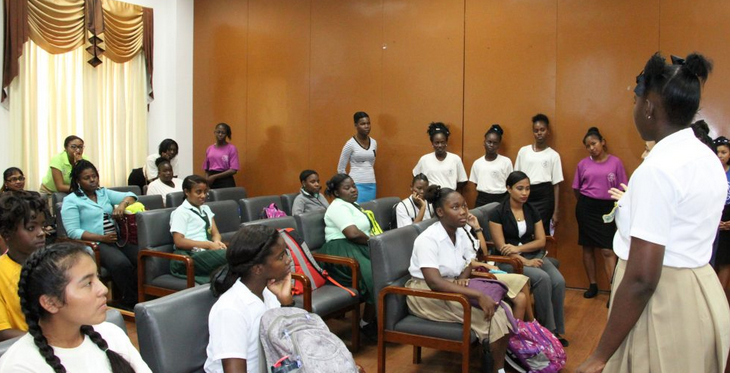"If I had, of course I would already be out of here," Mustafa said, of his yearning for a green card. "But I don’t really have a choice, do I?"
[Harlem News]
An African American man in a faded sports jacket approached Mustafa’s scented oil stand on 125th street in Harlem, selected a bottle and doused himself liberally. The man declared the oil’s color unpleasant and took off down the street.
It’s a common trick. “They come to smell good,” Mustafa said, defending his product. “They want some perfume, so they pretend to try it on,” he added, “I’m not angry. I’m used to it by now.”
Mustafa, 23, came to the United States two years ago having been blacklisted in his native Guinea as a result of his political activism. He doesn’t have a green card, which explains his line of work. He calls himself “a free man,” happy to own his own business and determine his own hours. Yet, the ongoing recession makes him yearn for his homeland.
“I started my work in the recession,” he lamented, “I hope that things are going to change soon.”
On a good day, Mustafa makes about $150. On a bad day, he makes less than a third of that. Since the end of the Muslim holy month of Ramadan last September, sales have been especially slow. Mustafa says he makes barely enough to pay for room and board. How about Zakat al-Fitr, the traditional Ramadan alms to the poor? “The time to go and ask hasn’t come yet,” he quipped.
Mustafa is one of many West African street vendors stationed around the famous Apollo Theater and at other locations along Harlem’s bustling 125th Street. Selling African goods, they have become an institution of the Black community that surrounds them, but, as with other merchants, they are now grappling with financial instability. Many are undocumented and, not surprisingly, preferred to use only a first name.
It’s a tough tradeoff; the liberty of working ones own hours but living under the shadows of possible financial disaster. Scented oils and African trinkets are being sacrificed as consumers balance competing needs during this recession.
Another vendor, Alex, originally from Mali, owns his own roadside bookshop across from international clothing chain H&M. “When you have a regular salary, you know how much you get,” Alex said, “But when you own your own business, you never know how much you get. It’s difficult. It makes me stressed and tired,” he confessed. “I have just enough money for rent and food,” he said, “but never enough to save.”
Alex said he would like to get married and have children, but his economic circumstances leave him unable to provide for a family. “In Mali, if you
want to have a wife, everyone helps you, but here no one helps you,” he said.
While the vendors successfully obtain licenses to operate their businesses, many are unable to afford the application process to adjust their legal status. “They said I have to get a lawyer,” Mohammed, another street vendor explained, “And I don’t have the money.”
Stymied by language barriers and lack of documentation, many remain confined to their small West African community, in an underclass of marginalized workers. Some speak of resentment from outside their community. Mustafa, said he’s been robbed twice in the last six months at his stall. While Mohammed, in business for four years, says he’s lost count of the number of times thieves have made off with his goods.
Winter is approaching and the hyped recovery hasn’t increased sales for the vendors. So what’s next?
“If I had, of course I would already be out of here,” Mustafa said, of his yearning for a green card. “But I don’t really have a choice, do I?”
Please post your comments directly or submit them to [email protected]
“Speaking Truth To Empower.”











